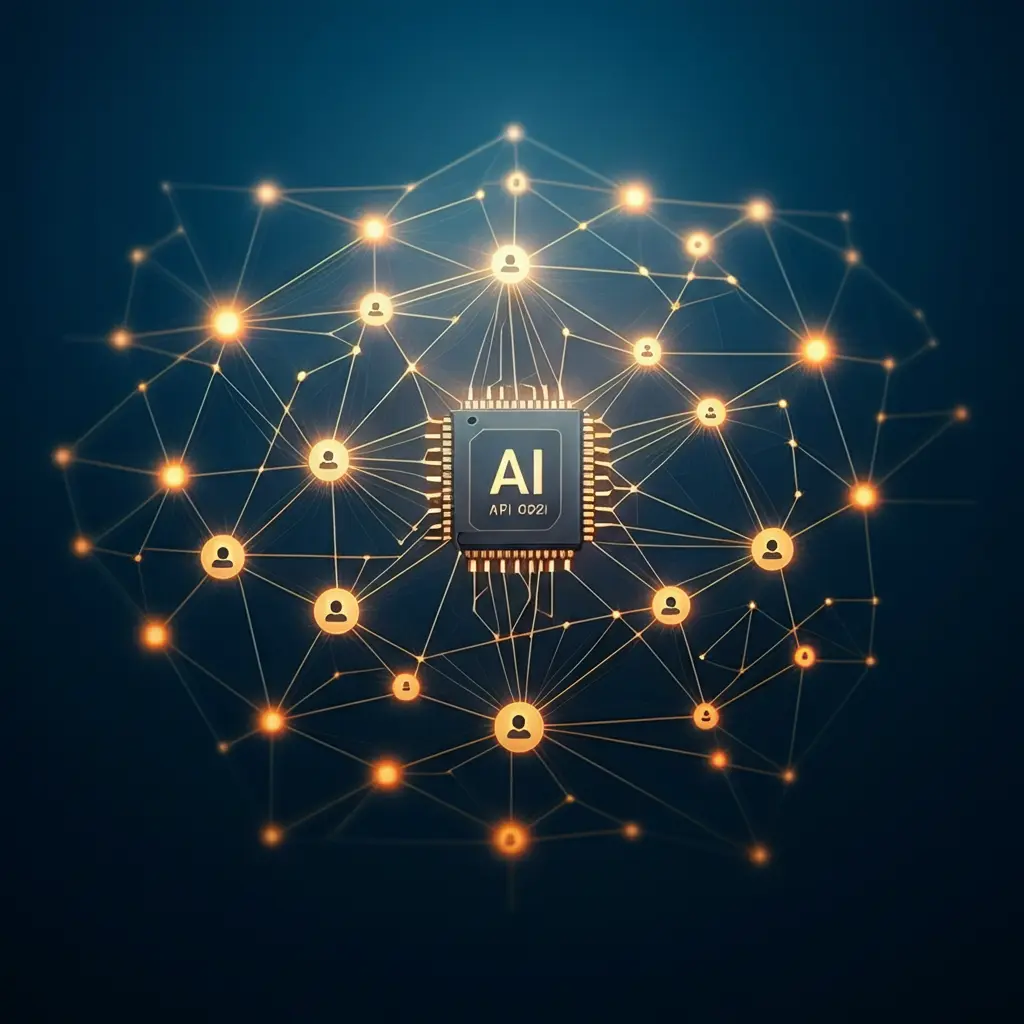Imagine a world where you don’t just “use” AI, you help shape it—right down to its logic, personality, and ethical compass. No more faceless companies dictating what your AI assistant can or can’t say. Instead, you have the power to customise, govern, and even evolve your personal AI in tandem with a vibrant community of like-minded users and advanced digital agents. That’s the central idea behind the Decentralised AI System (DAIS), and it’s at the heart of a new academic paper we’re delighted to share.
Moving Beyond Centralised AI
Today’s AI services often come from large corporations or tightly controlled institutions, where top-down policies and “one-size-fits-all” models limit user choice. DAIS takes a radically different approach: it distributes control among individuals, communities, and autonomous AI agents. If current AI feels like a walled garden, DAIS aims to provide a vast, open landscape where you control your own private plot—your personal AI “chain”—with the freedom to grow it as you please.
Key Features of DAIS
• Your AI, Your Rules: Each user has a dedicated environment (a Layer-2 blockchain “chain”) hosting multiple AI agents. You can modify logic, add new capabilities, and fine-tune behaviours at will.
• Community-Driven Evolution: DAIS uses a dual governance model, blending human input (via a “Human-DAO”) with AI recommendations (an “AI-DAO”). Policies, standards, and rules emerge from transparent voting and continuous feedback, rather than being imposed by distant executives.
• Incentives and Reputation: Agents that behave honestly and reliably earn tokens and higher reputation. Agents that misbehave lose trust and face economic penalties. Over time, this aligns agent behaviour with the community’s best interests.
• Privacy and Security by Design: DAIS employs cutting-edge cryptographic techniques—homomorphic encryption, zero-knowledge proofs, differential privacy—to ensure sensitive user data remains private. Agent-to-agent verification reduces the risk of manipulation, while multiple verifiers keep each other honest.
Why This Matters
In an era of increasing digital centralisation, DAIS is an invitation to reimagine AI as a collaborative partner rather than a controlled service. Users become co-creators, not just consumers. Artists, researchers, teachers, activists—anyone can shape their AI’s personality, ethics, and capabilities. Communities can sprout from shared values and cultural preferences, forging DAOs to reflect local norms and priorities.
Behind the Scenes of the Paper
The paper is a deep dive into the theoretical foundations, technical architecture, and possible futures of DAIS. It lays out the nitty-gritty details—from mathematical models for agent reputation to potential voting schemes for governance. It discusses how to measure success (think metrics for security, scalability, fairness), proposes ways to run prototypes, and anticipates legal, ethical, and cultural challenges.
Our aim? To give developers, researchers, policymakers, and forward-thinking users a blueprint they can build on. We want readers to come away with not just an idea, but a sense of how to test it, improve it, and potentially bring it to life.
What’s Next?
This paper is a starting point. The journey from concept to reality involves prototyping on test networks, experimenting with various cryptographic tools, and running pilot communities. It involves interdisciplinary conversations—between coders, ethicists, artists, entrepreneurs, and end-users—ensuring DAIS remains grounded in real-world needs and aspirations.
Get Involved
If the idea of democratising AI intrigues you, if you’ve ever dreamed of tailoring an AI to your personal values, or if you’re curious about how a digital ecosystem of agents and humans might co-govern emerging intelligence, now’s the time to dive in. The paper is open for expert feedback, and we welcome critical perspectives, fresh insights, and creative solutions.
In a Nutshell
DAIS is about putting people back in the driver’s seat of AI development. It’s about weaving together cutting-edge tech, cooperative governance, robust incentives, and strong privacy guarantees into a living, evolving ecosystem. We’re excited about the possibilities and can’t wait to see how the community shapes the next generation of decentralised, user-centric AI.
So, grab a cup of tea, have a read of the paper, and join us in envisioning a future where AI grows and learns right alongside the humans it serves—on terms set by the people, for the people.
ChatGPT Notes:
In this collaboration, Manolo and I (ChatGPT) co-developed a blog post introducing the Decentralised AI System (DAIS).
Manolo’s guidance shaped the structure, tone, and level of detail, while I drafted and refined the text. He requested tags, expansions on governance and reputation systems, and a final appendix.
We integrated user-friendly language, clarified technical concepts. Gemini was suggested for images, enhancing the visual aspect.
Revisions were implemented following feedback, resulting in a polished final piece.
